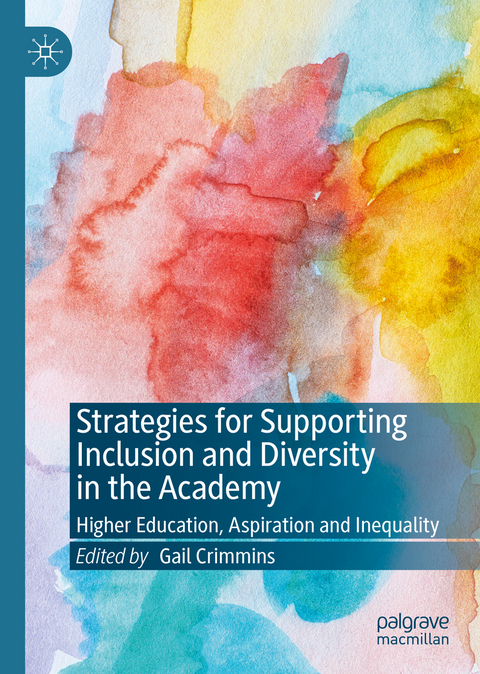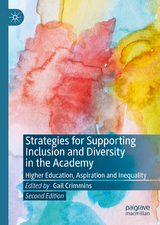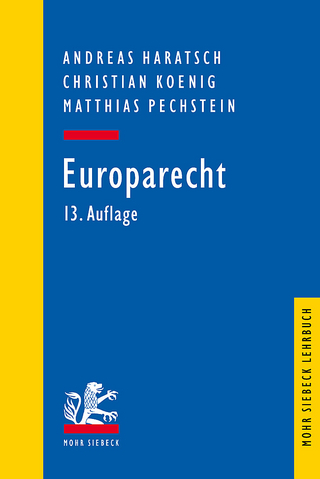
Strategies for Supporting Inclusion and Diversity in the Academy
Springer International Publishing (Verlag)
978-3-030-43592-9 (ISBN)
- Titel erscheint in neuer Auflage
- Artikel merken
Gail Crimmins is Senior Lecturer at the University of the Sunshine Coast, Australia. Her research interests include gender inequity and the often unheard narratives of women, and uses of feminist approaches to research.
Preface; Gail Crimmins.- Chapter 1. Don't throw out the baby with the bathwater: Statistics can create impetus to address educational inequity; Gail Crimmins.- SECTION I. Supporting racial diversity in the academy.- Chapter 2. Promoting race equality and supporting ethnic diversity in the academy: The UK experience over two decades; Andrew Pilkington.- Chapter 3. Reflecting on representation: Exploring critical tensions within doctoral training programmes in the UK; Rebecca Gordon and Lakshmi S. Bose.- Chapter 4. Killing the Indigene: Interrogating the support of First Nations' diversity in the modern university; Sandy O'Sullivan.- Chapter 5. Refugees in neoliberal universities; Aura Lounasmaa.- Chapter 6. A critical-relational approach to community development that increases well-being, learning outcomes and retention of international students; Athena Lathouras.- SECTION II. Engendering gender diversity in higher education.- Chapter 7. Thriving in the academy: Culturally responsive mentoring for Black women's early career success; Tamara Bertrand-Jones, Jesse R. Ford, Devona F. Pierre and Denise Davis-Maye.- Chapter 8. Women and leadership: Strategies of gender inclusion in institutions of higher education in India; Karuna Chanana.- Chapter 9. Mainstreaming gender into the quality assurance of higher education programs; Tània Verge.- Chapter 10. Success for LGBT college and university students; Kristen A. Renn.- Chapter 11. Trans inclusive higher education: Strategies to support trans, non-binary and gender diverse students; Stephanie Mckendry and Matson Lawrence.- SECTION III. Re'class'ifying academia.- Chapter 12. The Coffee Club: An initiative to support mature and non-traditional higher education students in Wales; Dawn Mannay and Michael R.M. Ward.- Chapter 13. Using a funds of knowledge approach to engage diverse cohorts through active and personally relevant learning; Sally Tazewell.- Chapter 14. The impact of stigma, placement instability and individual motivation on successful transitions in and through university for care experienced young people; Gemma Allnatt.- Chapter 15. Murdoch's aspirations and pathways for university (MAP4U) project: Developing and supporting low SES students' aspirations for higher education participation using school-based university outreach programs; Antoinette Geagea and Judith MacCallum.- SECTION IV. Disabling the barrier of dis/ability in higher education.- Chapter 16. Inclusive higher education for college students with intellectual disability; Lauren Bethune-Dix, Erik W. Carter, Cassandra Hall, Elise McMillan, John Cayton, Tammy Day, Megan Vranicar, Chad Bouchard, Lindsay Krech, Jenny Gustafson, Emilee Bauer The Women Who Write; Linda Henderson, Alison L. Black, Gail Crimmins and Janice K. Jones.- Chapter 17. Student Suggestions for Improving Learning at University for Those with Learning Challenges/Disability; Susan Grimes.- Chapter 18. A Case Study of the Educational Experience of Adult Students with Dyslexia across Five TAFE Institutes in Queensland; Jacques Caskey.- Chapter 19. Inclusion in Practice: Operationalising Principles of Inclusion and Diversity; Gail Crimmins.
| Erscheinungsdatum | 05.07.2020 |
|---|---|
| Zusatzinfo | XXXII, 403 p. 1 illus. in color. |
| Verlagsort | Cham |
| Sprache | englisch |
| Maße | 148 x 210 mm |
| Gewicht | 855 g |
| Themenwelt | Sozialwissenschaften ► Pädagogik ► Erwachsenenbildung |
| Sozialwissenschaften ► Soziologie ► Gender Studies | |
| Schlagworte | Barries in Higher Education • Decolonising Higher Education • Diversity in Higher Education • Inclusivity in Higher Education • Inequality in the Academy • LGBTQ in Higher Education • Promoting Professional Development • widening access |
| ISBN-10 | 3-030-43592-X / 303043592X |
| ISBN-13 | 978-3-030-43592-9 / 9783030435929 |
| Zustand | Neuware |
| Informationen gemäß Produktsicherheitsverordnung (GPSR) | |
| Haben Sie eine Frage zum Produkt? |
aus dem Bereich



